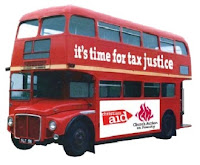 |
| Kinship Carers pose with councillors |
The Poverty Truth Commission yesterday hosted a second meeting between Kinship Carers from across Glasgow and Scottish Government special adviser Davie Hutchison. The group discussed the new 'Kinship Order', a distinct legal status for Kinship Care placements, which has been proposed as part of the new Children and Young People Bill.
Representatives from Glasgow Social Work, the Scottish Commission for Children and Young People and Bob Winter (Commissioner and former Lord Provost of Glasgow) also attended. The group were congratulated on their work at successfully raising the Kinship issue on the political agenda, and also recognised the strengths that come from working together with other agencies such as Social Work rather than against them. There was much interesting and useful discussion on whether new legislation is necessary to achieve adequate support for Kinship Carers, what the appropriate level of assessment for Kinship Care placements would be, how we can ensure that support services follow the child (rather than the carer) from the earliest possible stage, and what kind of financial backing will be required from Scottish Government to make adequate support by Local Authorities possible.
Overall we concluded that the jury is still out on whether primary legislation is needed, but that we are all very clear that legislation will only ever be a small part of the 'game change' necessary towards supporting Kinship Care placements.
We look forward to continuing to bring the Scottish Government together with Kinship Carers and other stakeholders to address this important issue.
 THE Poverty Truth Commission website has information about the story of the Commission as well as its plans for the future. The website has just been updated to reflect the new direction our work has taken over the last few months.
THE Poverty Truth Commission website has information about the story of the Commission as well as its plans for the future. The website has just been updated to reflect the new direction our work has taken over the last few months.




